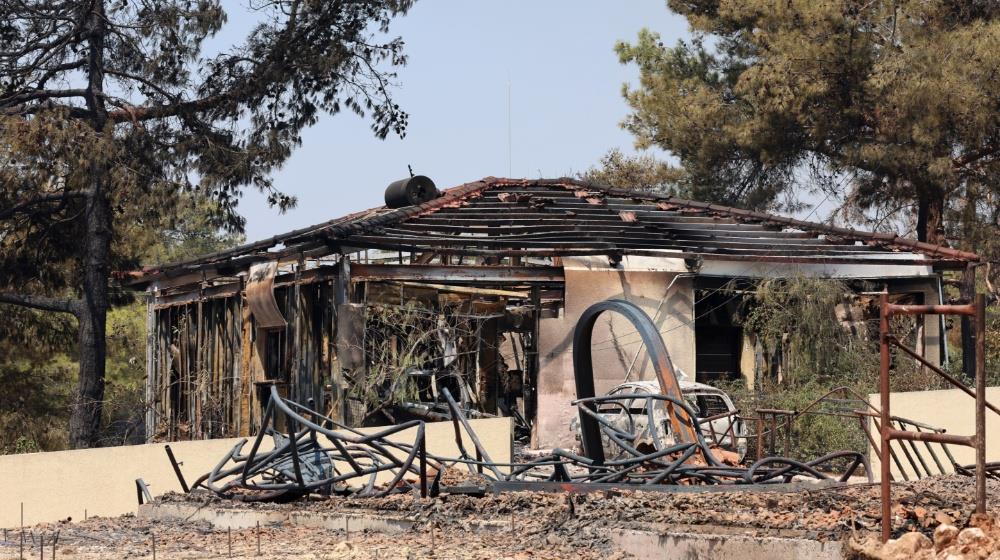The process of restoring power in the Limassol district areas affected by the recent wildfire takes time, EAC spokesperson Christina Papadopoulou has said.
Work is continuing with around 150 staff members, she told CNA, noting that there are 16 EAC crews from all the districts of Cyprus and 11 excavators, which are necessary for opening roads in hard-to-reach areas, so that the crews can go there and install power poles.
As of last night, Papadopoulou noted, 300 out of a total of 500 burned power poles had been replaced, 11 transformers out of 50 had been installed and activated, and a 12 km medium voltage overhead network had been constructed. As she explained, the initial damage to the medium-voltage overhead network is 80 km long, saying that “it takes both cost and time to open the roads and be able to approach the area.” She also said that approximately 200 power poles that were dangerously exposed to the ground were removed.
“We continue to work non-stop. Our absolute priority is to complete the network repair work safely and as quickly as possible,” the EAC spokesperson pointed out.
Christina Papadopoulou explained that “in order to restore power in all communities, the medium-voltage network must be set up first, which is the main part of the power grid. After that or in parallel the transformers must be activated and finally the low-voltage network [is restored], followed by the power supply to the premises.” As she said, “power will be restored in the properties that were not damaged once the entire network is set up and the transformer that supplies them can be activated.” As for the properties that were damaged, she said that it will take a long time to set up a new electrical installation, inspect and connect it to the network from scratch.
Furthermore, Papadopoulou referred to a “time-consuming process” and “enormous work” as regards restoring power in the areas affected by the wildfire, emphasising that “we are trying to do as much work as we can.” “The work is being done in mountainous areas, which is even more difficult,” she concluded.
(Source: CNA)









